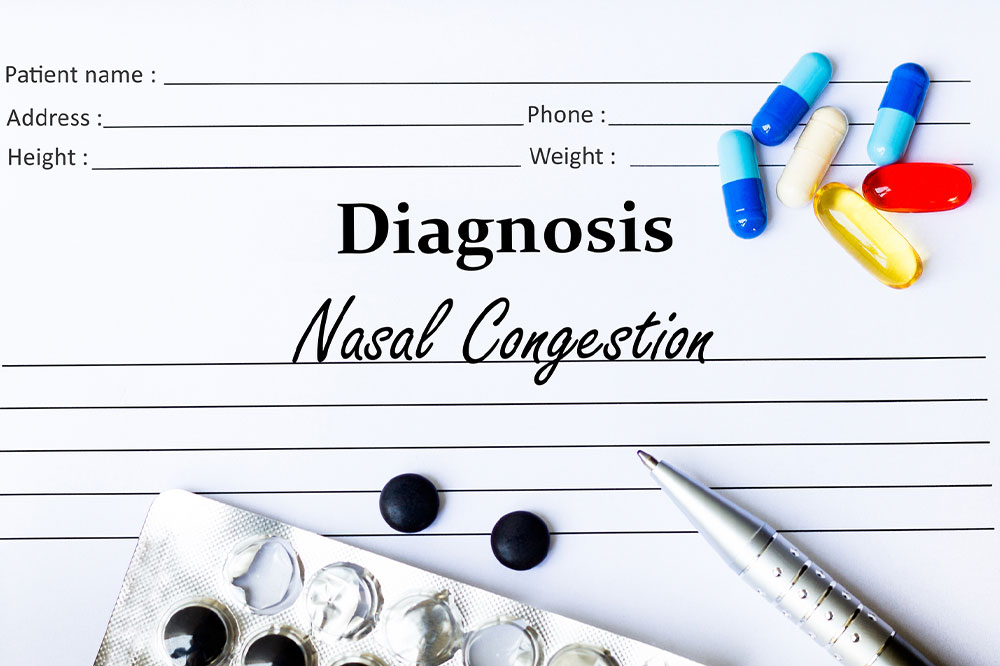
A guide to understanding and clearing up nasal congestion
Are you struggling to breathe through your nose due to nasal congestion? This condition can be incredibly uncomfortable and make it difficult to sleep and go about your day-to-day activities. Fortunately, many solutions can help you manage and reduce the effects of nasal congestion. In this article, the various sections discuss some of the most effective ways to help you clear up your nasal congestion and get back to feeling like yourself.
What is nasal congestion?
Nasal congestion, also known as a stuffy or blocked nose, is a common symptom of various health conditions. It happens when the nasal passages become inflamed and swollen due to an infection or allergy. This can lead to difficulty in breathing through the nose and frequent sneezing.
Causes of nasal congestion
Nasal congestion, or a stuffy nose, can be caused by various factors. The most common causes are allergies, colds, and sinus infections. When your body detects an allergen, such as pollen or dust, it produces excess mucus in the nasal passages, leading to congestion.
Colds and sinus infections also trigger mucus production as the body tries to fight the infection. Other less common causes of nasal congestion include hormonal changes, nasal polyps, and structural issues such as a deviated septum. Understanding the causes of the condition can help you identify triggers and prevent future occurrences. If you have chronic or severe congestion, you must see a doctor to rule out underlying issues.
Symptoms of nasal congestion
Here are some common symptoms of nasal congestion that you may experience:
Difficulty breathing through the nose
Runny nose or postnasal drip
Sneezing and coughing
Headache or facial pain
Decreased sense of smell or taste
Snoring or restless sleep
Diagnosis of nasal congestion
A healthcare provider can diagnose nasal congestion through a physical examination and knowing a person’s overall health history. The doctor will recommend tests such as a CT scan or allergy testing to determine the cause of the congestion.
During the physical examination phase, the doctor will look inside the nose with a nasal speculum and check for swelling, polyps, or other abnormalities. They may also use a handheld light to check for blockages and signs of infection. Knowing a patient’s overall health history is also crucial in determining the cause of nasal congestion. The doctor will ask about any allergies, recent infections, or exposure to environmental irritants. They may also ask about remedies already prescribed, as some can cause nasal congestion as a side effect.
In some cases, additional testing methods may be needed, including a CT scan to check for structural abnormalities, allergy testing to determine if allergies are the cause, or a nasal endoscopy to get a closer look at the nasal passages.
If you are experiencing chronic or severe nasal congestion, seeing a healthcare provider for a proper diagnosis and treatment plan is essential. Ignoring the symptoms or self-treating with over-the-counter remedies can lead to more severe complications and prolonged discomfort.
Treatment options for nasal congestion
If you are familiar with nasal congestion symptoms, it is crucial to seek a proper diagnosis to determine the underlying cause of your congestion. Your doctor may recommend various treatment options based on the diagnosis. Here are some common treatment options for nasal congestion:
Prescription supplements
Nasal irrigation or saline sprays
Steam inhalation
Warm compresses or nasal massage
The presence of chronic or recurring nasal congestion requires further medical attention for a few people. If your symptoms persist or worsen, it may be necessary to consult with a doctor to rule out any underlying medical conditions such as allergies, sinus infections, or nasal polyps.
Prevention tips for nasal congestion
Any of the millions of people who suffer from nasal congestion can tell you how uncomfortable and frustrating it can be. It is thankfully possible to prevent nasal congestion and avoid its unpleasant symptoms altogether. Here are some tips to keep your nose clear and breathe easy:
Dust or allergens should not be allowed to accumulate in your home. Regularly vacuum, dust, and wash linens to keep allergens and irritants at bay.
Utilize a humidifier or vaporizer to keep the air in your home moist. Dry air can irritate the nasal passages and lead to congestion.
Stay hydrated. A sufficient amount of fluids can aid in the thinning of mucus and the prevention of congestion.
Avoid irritants that can aggravate the nasal passages.
Practice good hand hygiene to avoid catching colds and other infections that cause congestion.
Stay up-to-date on vaccinations, particularly for the flu, to reduce the risk of infection.




